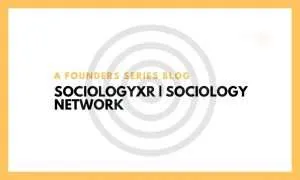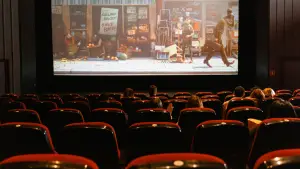Using Online Workbooks
Teaching online has become an increasingly important skill at the college level, so approaches to online sociology assignments are growing and changing. Over the past several years we have been creating and implementing online classes using a “workbook” model. With the current COVID-19 pandemic, in-person classes have been moved online en masse, so we decided to share our model in hopes that it may be useful for those who have been forced to transition to online teaching overnight.
The overarching model is to create a written workbook that includes all of the instructor’s lecture notes, readings, and student assignments. In our workbooks we ask students to engage with multiple learning platforms and copy all of their work into the workbook, so all of the responses are in one single location. This assists us in grading and allows students to see the connections between the different tasks in which we ask them to perform. Depending on the course topic, number of students and time constraints, we have assigned weekly workbooks, bi-weekly workbooks, or even one workbook per month.
Online Sociology Assignments
Here is a brief outline of a normal workbook that we would create for one of our online courses.
Lecture Notes
We begin each workbook with about one-page of general lecture notes. These are notes that reflect information we may use to begin our in-person lectures. We provide an introduction to the workbook’s content, discuss how the workbook’s content relates to the course, and provide a brief overview about the materials we are asking students to engage with.
Transition to Assignments
Once we have provided students with general lecture notes we transition to the assignments students are being asked to complete. Even though we have already provided students with some lecture notes and readings, it is still important to preface each assignment with some additional instructional content. We will list a variety of assignments below, but we are selective and do not always include ALL of the assignments. It all depends on the topic and how much time students are being allowed to complete the workbook.
Blog-style writing
One assignment that we almost always include in our workbooks is a blog-style writing assignment. This assignment can help replace traditional in-person discussions, and in many cases is more approachable for students. Simply-put we provide students with a writing prompt and ask them to write around 2-3 fully developed paragraphs (or about 500-800 words).
This assignment works best if students have a discussion board on which they can share their blog. Once students post the blog to the discussion board we also ask them to copy the blog and paste the response into the workbook document. Additionally, we ask students to respond to 2-3 other blogs and provide a space for them to copy their responses to classmates’ blog in the workbook as well. This allows the instructor to provide individual feedback on students’ ideas without intruding on the discussion.
Multiple-Choice Questions
Another assignment that is a staple of our workbooks is a series of multiple-choice questions. We generally associate these questions with a single reading or video. While multiple-choice questions may not be our preferred form of assessment, it allows us some ability to direct students’ attention to the important concepts and terminology associated with complex ideas.
Generally speaking, we only assign 10-20 multiple-choice questions per workbook. This section also introduces important variability during grading. The students who are engaging with course materials will mostly get all their points on this section, while the students who may not take the time needed to engage with those sources will lose points here.
Social Media Assignments
Another regular assignment in our workbooks from past years are Twitter Assignments. For these assignments, we give students a prompt and ask them to generate a Tweet. This assignment obviously takes some preparation on behalf of the instructor, but it is easy to organize and track if you create a shared hashtag for the class.
You are also welcome to have students tag @SociologyTheory, which is the handle we have used for all of our Twitter assignments. For example, we have used prompts such as, “generate a tweet that draws attention to a form of social inequality,” or “generate a tweet that brings attention to substantial innovations in their field-of-study by someone who is of a minority group.” Both cases have provided exceptional reflection. Students are asked to engage (like, retweet, comment) with at least three of their classmates’ posts. Finally, students are asked to copy their tweets and paste them in their workbook as well as provide a short reflection paragraph on their engagement with their classmates’ tweets.
While we have typically used Twitter for social media assignments, there are so many options when it comes to social media. I’ve talked with instructors who have used Instagram and those who have assigned students to create memes. The options are really endless!
Academic Writing
In contrast to blog-style writing, we often ask students to write using an academic or collegial voice. Generally these assignments are designed around summarizing complicated topics, but they may also involve some element of analytical writing. In short we generally provide an academic article and ask students to draw out the important points reflected in the writing. We usually will not ask students to post these pieces of writing in a discussion board—they are only posted within the workbook.
Reflective Writing
These are writing prompts where we allow students to vent. We give students a topic from the workbook and ask for their actual opinions. In these assignments we want to provide students with space to reflect and apply the topic to their own life or to assess the topic from their own worldview. These reflective writing assignments are typically only posted within the workbook, and not on discussion boards in hopes that students will feel more comfortable expressing their opinions and openly reflecting on what they are learning.
Why We Like these Online Sociology Assignments
Requires Little Technical Skill
The first draw to this approach to online courses is it does not require a lot of technical skill from students or instructors. If you have never had to record a lecture before, it can be a very time consuming learning process. Likewise, students who have not had to use technology like Zoom before, may have a hard time initially accessing it.
Using workbooks avoids all of these stressors and time-sucks. Students do not need access to anything but Microsoft Word, social media, their textbook or online readings, and videos. Of course, internet access is required for any type of online teaching so students can communicate via email or whatever online interface your institution uses. But, these workbooks minimize the use of technology, allowing instructors and their students to avoid dealing with major technical difficulties that may impact the learning process.
Forces Students to Engage with Course Materials
Secondly, and anecdotally, I would argue that students read more when they cannot rely on lectures to retain course concepts and ideas. I cannot say for certain that this phenomenon exists since I do not have any data to support my claim, but the workbook approach really forces students to reference the course materials you assign, whether those are videos, articles, or textbook chapters. Without a visual/audible lecture, students have to view those materials to complete their assignments.
Of course, there are lecture notes included in the workbooks to help connect concepts and course materials, but students have to actually look at the materials referenced in those notes, which we would say is a good thing! We did assign those materials for a reason, after all.

Streamlines Grading and Encourages Student Organization
A third reason we love this approach to online courses is everything for each unit is in one place for grading. This helps students stay organized as well as streamline the grading process. Even though each workbook includes multiple assignments, all of those assignments are in one place. This structure allows instructors to grade all of the students assignments for that unit at once. It also forces students to keep track of what they have completed and what they still need to complete.
For the most part, students seem to benefit from this organization. One student even commented on this benefit in course evaluations for an online summer course saying, “I like the [workbooks] because it gives a clear description of everything that needs to be done in the week.” (The structure of this summer course included a workbook a week for an eight-week summer course. However, we have also structured a course with five workbooks across a typical 16-week semester, and four workbooks across eight-week summer courses. There are really endless possibilities for structuring a course using this approach!)
Another reason this approach is ideal is you do not have to keep up with all the discussion board posts as they are happening because you will have a chance to see them all in the workbooks, including responses. Although, we would recommend trying to stay on top of discussion board posts as students seem to appreciate instructor input in those spaces—depending on the amount of students you have, of course. For example, one student mentioned, “[my instructor] included himself in class discussions which benefit the students because he would further elaborate on our conversation.”
Discussion boards are also a great space to make sure students are using respectful and timely language to discuss sociological topics. Although, you can also include lecture notes on appropriate language in the workbooks, which we would highly recommend!
Accommodates Students with Diverse Needs
Lastly, this approach allows students to work around their schedules, making it more accessible to students who deal with things like chronic illness than the typical Zoom or Skype meeting—unless it is recorded and students are able to watch it later. However, as mentioned, there can be all kinds of accessibility issues with video lectures whether those issues relate to students with disabilities or technological barriers. Workbooks, for the most part, side-step these types of accessibility issues.
Even in cases where students may have issues with accessibility, there are built-in accessibility features in programs like Microsoft Word to help students access the material if, for example, they have vision impairment. Although such features are not perfect, and are not a replacement for completely accessible platforms, they can be helpful for both students and instructors who are navigating online courses!
We hope you decide to try this approach at some point for your online classes. It leaves a ton of room for creativity from both students and instructors, and introduces endless possibilities as far as structuring courses across a semester.
If you decide to try it out, we would love to hear how it goes! Shoot us an email at AppliedWorldwide@gmail.com.







